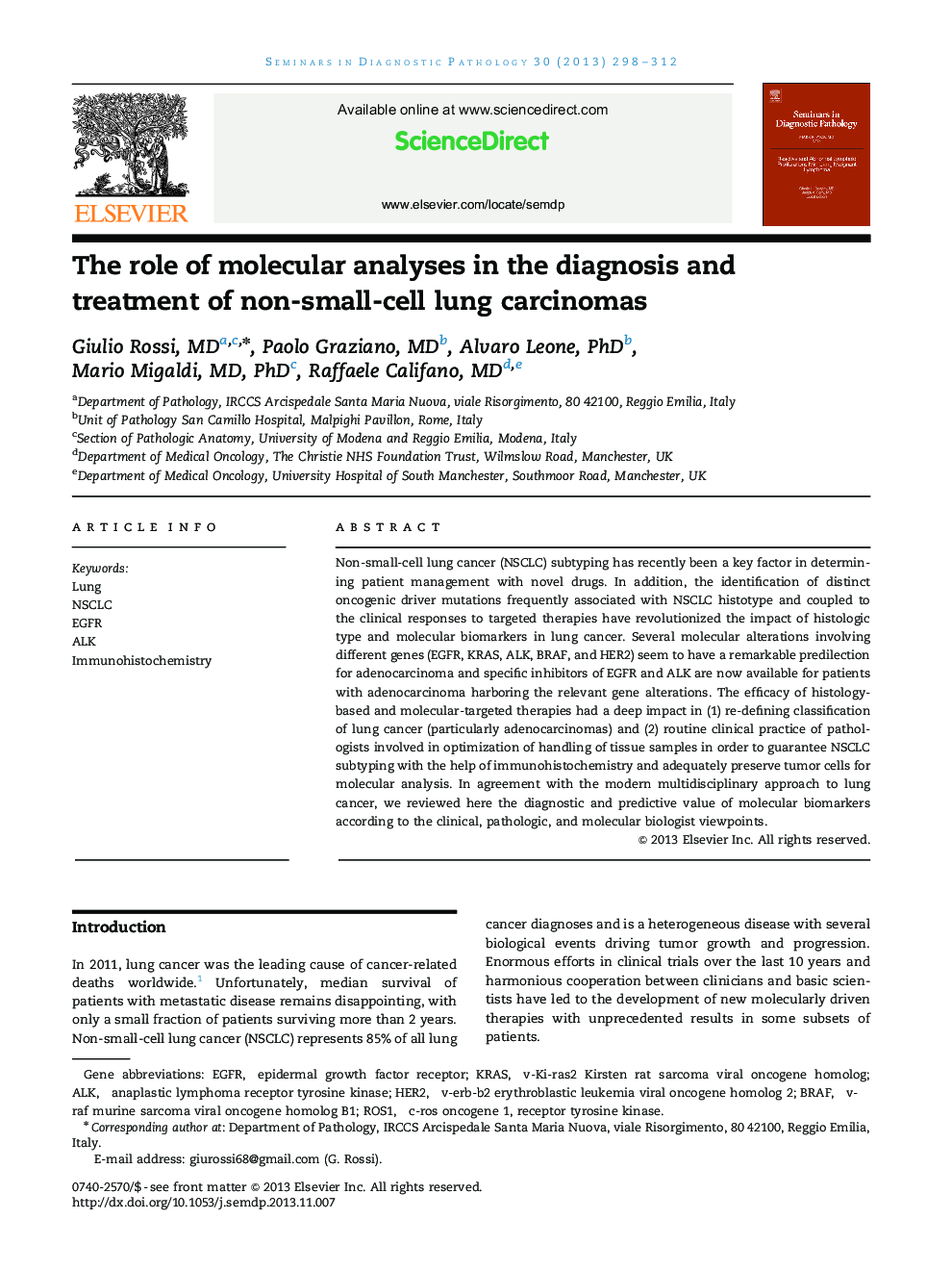| Article ID | Journal | Published Year | Pages | File Type |
|---|---|---|---|---|
| 4138377 | Seminars in Diagnostic Pathology | 2013 | 15 Pages |
Non-small-cell lung cancer (NSCLC) subtyping has recently been a key factor in determining patient management with novel drugs. In addition, the identification of distinct oncogenic driver mutations frequently associated with NSCLC histotype and coupled to the clinical responses to targeted therapies have revolutionized the impact of histologic type and molecular biomarkers in lung cancer. Several molecular alterations involving different genes (EGFR, KRAS, ALK, BRAF, and HER2) seem to have a remarkable predilection for adenocarcinoma and specific inhibitors of EGFR and ALK are now available for patients with adenocarcinoma harboring the relevant gene alterations. The efficacy of histology-based and molecular-targeted therapies had a deep impact in (1) re-defining classification of lung cancer (particularly adenocarcinomas) and (2) routine clinical practice of pathologists involved in optimization of handling of tissue samples in order to guarantee NSCLC subtyping with the help of immunohistochemistry and adequately preserve tumor cells for molecular analysis. In agreement with the modern multidisciplinary approach to lung cancer, we reviewed here the diagnostic and predictive value of molecular biomarkers according to the clinical, pathologic, and molecular biologist viewpoints.
